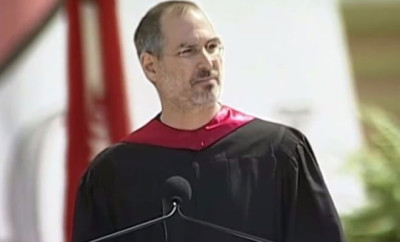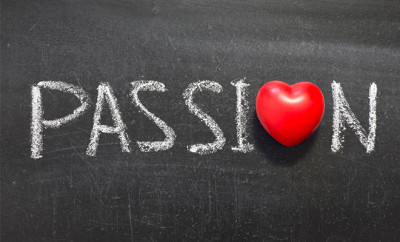
What Does it Take to Succeed at Your Impossible Dream?
“What will you be able to do, knowing the critical success factors that enabled a young man of 27 to secure a highly sought after appointment – at 27? Trail-blazing against the norms and the way it‘s always been. Would you like to know how he achieved that level of success at that young age?
Then read on, asking yourself:
- “What is my dream appointment, job, position, account, etc.?”
- “What seems similar and what feels familiar?”
- “What will it mean when I identify these?”
Recently Tim Goodenough, a colleague and friend, was appointed to his dream job. A dream he realised over a period of 5 years. Also curious as to what it takes to be appointed in your dream job, I interviewed Tim prior to the start of the 2008 Super 14. Later I also became curious about the possibility of identifying the beginnings of a template for success – in being appointed to our dream positions.
Given this:
- “What position was he appointed to, and what is so special about his appointment?”
- “What makes being appointed to this unique?”
- “Who is Tim Goodenough?”
Tim was appointed as the Mental Conditioning Coach of the Sharks for the 2008 Super 14 Rugby Union competition. In the sport of Rugby Union, the Super 14 International competition is played between provincial franchises of Australia, New Zealand and South Africa the next and highest level of playing rugby is International Tests. In Rugby Union, Super 14 is the second highest level of play to be involved in – there are roughly 8 levels of rugby below Super 14.
What Makes This So Special?
“What was it that got him there?” If it was not luck (being at the right time and the right place) and politics ( it’s who you know) and if he is not a prodigy and if he has not been coaching other teams at similar or higher levels before, then what was the secret of his appointment? Where did it start? When did it start? What needed to be done?
Tim’s Life-Story — Before the Dream
Tim is 27 years old and completed his schooling in 1998, in the provincial home of the Sharks. Whilst at school he heard about NLP and decided he wanted to become a NLP Trainer. He did a whole budget, given the expenses involved of attending NLP courses in the USA, with a view to work out what he was aiming for. He realised that with the massive expenses involved, the best he could hope for was to be able to afford a NLP Practitioners qualification by the age of 30 (the first of 3 NLP qualification gradings). Tim graduated from Rhodes University with a BSc (Inf-Sys), majoring in Management, Computer Science and Information Systems in 2002.
During his final year of studies, he started working for Standard Bank, working as a bank teller, getting to know how the systems worked from the inside, so that he could further his chances to get a job with the bank after University. He believes that he needed to know and understand a system before he could hope to change or influence it. In order to be prepared for his targeted interview, Tim held interviews with other companies, even in unrelated fields – so that he could become skilled at becoming a good interviewee. He succeeded in joining Standard Bank as part of their Graduate Programme in 2003, overcoming considerable competition for his post.
While working in the financial centre of South Africa he heard about NS/NLP Practitioners being presented by Anne Renew. He approached her to learn more about what she was doing, and in the true generosity that is a hallmark of Anne’s style, she offered to sponsor his first training – a NLP practitioner training, on proviso he did Meta-Coach Training (ACMC) in October 2003 in South Africa.
And so the 5 Year Dream Began
While attending the pre-courses and specifically APG (Accessing Personal Genius), Tim realised Neuro-Semantics is what he wanted to do with sport teams. While still attending ACMC, he followed his conviction and phoned the Sharks, enquiring about the possibility of coaching them. After presenting his marketing blurb and stating that:
“We have the best coaching methodology in the world and we can change you guys!”
They politely told him “No thanks, we have someone doing that.” Although disappointed, because he really wanted to work with the Sharks, he immediately thought:
“OK, who’s next?”
He then also contacted all the other Super Rugby franchises in South Africa, to see if there was any opportunity for him to work with them. Following up on those first contacts after ACMC, trying to get hold of decision-makers, meaning anyone involved in coaching was his thinking at the time, and explaining what he can do for them, he got told they already have their own Sport Psychologists. Although disappointed at not succeeding, he used the replies as feedback and asked himself what he needed to do and be able to do, in order to be successful in the future. During this experience of questioning why he wasn’t successful Tim realised several things.
He realised that he actually did not believe he could do it; if he was to walk in on the Monday morning, he would not be able to do the job, and this created the awareness that:
“If I could not even sell me, there is no-way I could sell them.”
He also realised you cannot sell coaching by saying it is the best; you need to find another way to prove the value of coaching.
Tim began to understand that he would have to differentiate himself from Sport Psychologists. He asked himself:
“What is my unique selling point? How can I prove coaching works?”
He then realised that Sport Psychologists are neither the enemy nor the competition. He also asked himself, what are Sport Psychologists doing that is working? What are they doing that is making a difference in teams; how do they fit into the system. He then focused on finding out as much as possible about how they work, the language they use, how they get their work done without receiving the glory, being the unsung guy behind the scenes. This presented a further challenge:
“How do you market yourself, when taking away credit from others is not good for business?”
Tim is the kind of guy when a question gets into his head, it stays there until it gets answered – maybe a day or a week often times much longer than that. He gathered a team of coaches with whom he could debate these aspects pragmatically. A long time ago he learnt that you don’t have to be right, you just have to be articulate, because debating a point does not have any bearings on your personal value, it is about the context. Fortunately having friends and colleagues like that, have been one of his biggest value-adds both professionally, but especially personally. Without his business partner Michael, Anne and the support of many others, he believes none of what he has achieved would have been possible.
The Next Decision Step
He stopped approaching teams, firstly because he realised what he was doing was not working and secondly, he realised that he did not have the solution yet as to what will work. Realising that if he focused more on him and he refined his Inner Game strategy, he would also have more to offer. He did not want to make the same mistakes twice.
For the next two years Tim learnt the craft of Coaching – Meta-Coaching individuals to improving their sport performance, in his spare time while still working at Standard Bank. He attended ACMC as often as possible as Team-Leader in order to enhance his skills and articulation of coaching. He asked coaching friends to coach him, fine tuning his own Inner Game and coaching skills. He used his IT ability to develop a business to pay his way to attend all the advanced trainings in Neuro-Semantics. He did certification as Master Practitioner in Neuro-Semantics in March 2004.
Taking Things to the Next Level
With Tim’s keen interest in sports, as well as his business partner, Michael Cooper, they set out to model what it takes for sport-persons to excel in their chosen game, interviewing 20 elite sportsmen and woman in South Africa who have excelled on the international sports stage. At the end of 2004 they decided to write a book about their progressing research on sporting excellence. Their strategy that used was, to interview a sportsperson, then for one of the pair to write a chapter after an interview and present it to the other for feedback. Tim reckons this constant feedback – timely, factual, concise and sometimes very brave feedback is one of the secrets of what has been happening to Tim in the last 5 years.
Writing the book enabled Tim to further articulate effectively what it is, what he is doing and how that is different and complementary to Sport Psychology, he learnt an important lesson when working with people new to the field of coaching or NLP/NS.
“If you really know your stuff conceptually, then use their language so you don’t have to fall back to jargon. If you have to use your language (technical jargon) then you don’t know your stuff well enough.”
The caveat to this rule is that:
“Once you are in the system you need to use your own language, to create IP and brand distinction, obviously within reason.”
Testing the Systems
Using their research, while writing the book they approached different teams and sports-people for their feedback. One of the main influences was Dr Henning Gericke, the Springboks’ Sport Psychologist, with whom Tim built a mutually beneficial relationship, discussing the research Tim was doing and its application with sport teams. During this time and through nurturing this relationship over the following years, Tim enhanced his understanding of the unique requirements of Sport Teams to mentally perform at their best.
In 2005 while doing Trainers Training in Neuro-Semantics and NLP in South Africa, the same venue also hosted one of South Africa’s top 5 Soccer Teams, Moroka Swallows. When, in the last days of training, one of his co-trainees suggested to Tim that they should maybe approach the Soccer Coach and Management to enquire about applying Meta-Coaching to working with the team, Tim informed him he had already approached the Soccer Coach and secured a follow-up engagement. He looked at it as an opportunity to test his readiness for approaching sport teams.
During two months of engagements with the Swallows and the subsequent, “no thank you”, Tim used the interaction as feedback and all learning. Providing him the opportunity to engage and further understand the unique system a team operates in, he came to the realisation that he needed to create and present a product to the Sport Teams. Following that Tim started working in earnest on just such a product for coaching Sportsmen.
A Seeming Sideways Direction
In 2006 Tim joined the newly created Leadership Development Coaching and Mentoring Unit at Standard Bank. What then happened was 18 months of accelerated development in his coaching and management skills. Learning quickly, even after only one introduction to a concept, has always been one of Tim’s personal strengths. Looking back on those 18 months Tim said:
“I could not have learnt more, even if I tried. I also could not have exposed more of my weaknesses and growth areas if I had wanted to.”
One of the important lessons that he learnt for himself was:
“If I feel I have something to prove, I am probably not going to perform at my best.”
During his work at the Bank, he was continually pushed outside his comfort zone and had to grow and adapt constantly. It was perfect preparation for the job ahead.
Getting Into the Game
In 2006, Tim became aware of the formation of the Castle High Performance Squad for developing rugby players in South Africa; a corporate sponsored project with the aim of accelerating the development of these players. All facets of playing rugby were addressed, including nutrition, physical conditioning and also the mental conditioning of the players. Tim and Michael tendered for the Mental Conditioning function and for many months flew around South Africa to work with these selected players. Although in terms of a coaching business it was not a model that was financially sustainable, it was an opportunity to get involved, get exposure, make a difference and create a demonstration of what they can offer. They used the emerging model from their book research, and fine-tuned the model through further review and debate. This project introduced Tim and Michael to all the major Rugby Provinces, also providing Tim the opportunity to build a working relationship with the Coach of the Sharks, Dick Muir. It was a huge learning curve for Tim providing a unique opportunity to get to understand the systems the teams operate in, even when things did not work out as planned.
In 2007, Tim through his work with the development squad and the relationship he built and nurtured with the Rugby Provinces was in the final stages of negotiating a position with the U/21 squad of Western Province, the major entity in the Stormers Super 14 franchise. Soon thereafter, Western Province released the Senior Coach and appointed the U/21 coach, as caretaker till the end of the season. Given the new and different structures the U/21 coach now worked in, the arrangement between them did not come to fruition. Although disappointed Tim’s desire to work with Sport Teams was strengthened with the near-success of breaking into the Rugby coaching world.
Getting on the Map
 In June 2007, Tim and Michael’s book on modeling top Sportsmen – “In the Zone, with South Africa’s sports heroes” – was published. One of Tim’s unique views on their book is:
In June 2007, Tim and Michael’s book on modeling top Sportsmen – “In the Zone, with South Africa’s sports heroes” – was published. One of Tim’s unique views on their book is:
“It is a wonderful and big business card!”
The book provides a structured process that Individuals or Teams can follow to enhance their chances of excelling in any endeavor they have chosen. The book also provided Tim with his much valued tangible product to present to Sport Teams, regarding the work he proposes to do with such a Team.
Tim promptly gave a copy of the book to the manager and coach of the Sharks, as well as other coaches and people they knew were decision-makers in Sport. Having built and maintained his relationship with the Springboks’ Sport Psychologist, Tim seized the opportunity to present Henning Gericke with his book and subsequently each Springbok was given a book before their departure on their successful 2007 Rugby World Cup campaign.
Making the Final Move
In 2007, Tim applied for the mind-work position at the Sharks, presenting the coach with a formal proposal. This previously part-time position has in the years gone by been occupied by a Sport Psychologist. The Sharks Super 14 franchise was looking at continuing to work with Dr Henning Gericke as he was successful with the team during 2006. Dr Gericke however, chose to take a hiatus from the sporting world after the successful world cup in 2007, and recommended that the Sharks appoint Tim. This endorsement and the existing relationship he had with the union added to Tim being appointed for the duration of the Super 14 competition in 2008, to fulfill the task of mentally preparing and managing the Team during the competition.
Asking Tim how will he know when it is a job well done!
Tim: “Winning is the obvious goal from a professional sports team perspective, however as a goal it can be tricky to manage, because winning isn’t something that is completely in your control. Too much focus on winning can be counter-productive.
From my side, I need to have done everything in my power to support the team becoming the best they can be, in whatever shape, form, action or lack of action that is.”
How do you aim to do this?
Tim: “Become part of the system, and then be flexible enough to be who I need to be in the journey. I know the “In the Zone” model works, I know Meta-Coaching and NS work, I just need to adapt them to fit this unique environment.”
Lastly I asked him, how did he never give-up?
Tim: “If you want something this much, you can’t fail. For a long time it was something close to an obsession – it became all consuming even when I relaxed. I also moved my success criteria from an external focus to focusing on small things internally – detail.”
I, for one, am keenly anticipating the difference that Tim’s work will produce in the Sharks during this year’s Super 14 competition, which started in the middle of February. Tim typically aims for continuous hard work and over time a tipping-point 5% enhancement in the Team and individual players.
Summary
Tim’s life story and specifically the last 5 years provided me with the following template for success.
» Lock in to your defined dreams with flexibility in execution. Be that NLP qualifications as schoolboy or job at Bank as student, or the dream of Super Rugby Coach – aimed, never waivering, always adapting.
» Act on convictions and use results as feedback. First contacts with Super Franchises, Swallows, Dr Gericke, Castle High Performance Squad, Western Province U/21, Leadership Development Coaching and Mentoring Unit at Standard Bank, In the Zone for Springboks in World Cup Squad – asking insightful questions and then improve whatever needs to be done.
» Get totally involved in your own Inner Game. Best qualifications for the dream, from NS/NLP Practitioner to Master to Trainer, ACMC, Bank’s Unit and developing own Inner Skills through self-coaching, as ACMC Team-Leader and as coachee with friends and colleagues – to realise possibilities, making use of support and all available options.
» Get to know the systems you want to work in. Be that as a teller, in interviews, the competition (Sport Psychologists), sport teams (Swallows), rugby squads (Castle Squad), rugby teams (Super Rugby Franchises) – in order to fit in and then support the team becoming the best they can be
» Develop your unique product. Basic program for Swallows, modeling sport-stars, writing a book, developing a model in the book, formal proposal and plan for Sharks – realising that conceptual talking rarely convinces someone into taking action.
» Keep on testing the market. At first Swallows, then Dr Gericke, then Castle Squad and Standard Bank, and lastly Sharks – taking your own performance and the product up the levels.
What seemed similar, what felt familiar, what sounded like a reflection of your Life story? What not? Yet again – what does it mean to have identified these? How will you apply them in your future now?
As interviewer, I want to use this opportunity to not only congratulate Tim Goodenough, a fellow Meta-Coach, but also to wish him well in his valuable work and thank him for putting Meta-Coaching on the International Sport-Map.
References
In the Zone – with South Africa’s Sport Heroes by Tim Goodenough and Michael Cooper.







